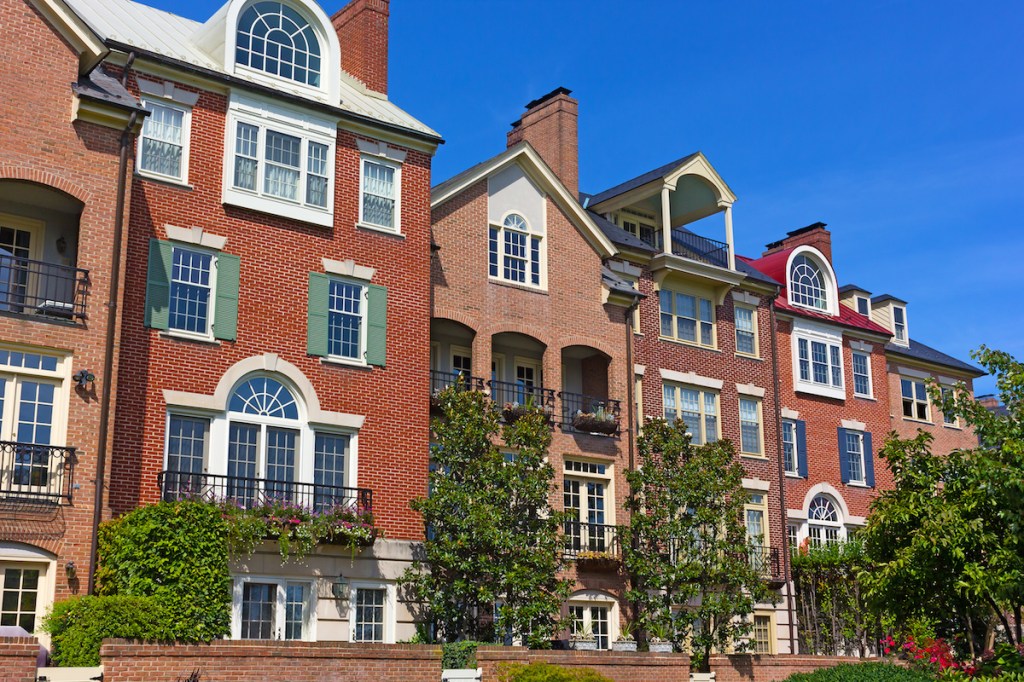When the coronavirus pandemic paralyzed the nation in March, the Washington, D.C.-area housing market came to an abrupt halt.
“February had been a good month, but in March everything stopped,” said Gregg Busch, loan officer at First Savings Mortgage. “By about the second week of March, the market stopped till about the middle of April.”
Since mid-April, however, Busch has been dealing with a full-speed-ahead environment.
“We are seeing a tremendous pickup in buyers calling to get back out with Realtors to start looking at properties,” he stated. “A lot more has come on the market just in the last two weeks. And we’re seeing significant multiple offers on one property. Our strongest market is single-family homes priced between $900,000 and $1.5 million – and that market is where you’re seeing five to six offers in certain neighborhoods, sometimes more.”
“It’s been active,” said John P. Downs, area manager and mortgage advisor at The Downs Group / MVB Mortgage. “Very, very, very active. This weekend, my team had about eight offers going, with every single one of them competitive. All of my listing agent partners that I talked to said that the majority of the houses they put on the market Thursday or Friday had contracts on them this weekend.”
Downs conceded the furloughs and layoffs that plagued many parts of the economy did not impact the federal bureaucracy, but much of the local workforce started to consider house hunting after they became dissatisfied with sheltering in place.
“If you take the average attorney or government worker or government contractors at the defense agencies, they have their jobs and they’re working from home making near full pay,” he said. “But they’re a little frustrated at what they’re living in, and they want to move. I think that’s why the D.C. market’s been as strong as it has been.”
Chanin Wisler, loan officer at First Washington Mortgage, is also working hard to keep pace with activity.
“I would say it’s still pretty hot,” she said. “If the house looks good and it’s priced, right, you’re going to have multiple offers – it’s not going to stay on the market very long.”
Wisler observed that first-time buyers are a significant presence in her region.
“A lot of people have been on the sidelines for a while,” she continued. “Either because they moved back in with folks or they’re in a multigenerational household and now it’s time to move out. I thought with the coronavirus outbreak that I would be a lot less busy – but I’m as busy as I ever was, with many first-time buyers.”
“D.C. is an area where the average income is high and the average age is pretty low,” said Downs. “If you have a young, well-paid person that’s still getting full pay, and they haven’t been going out as much and spending and doing all the cool, fun single things that people do, they’re more liquid right now. Those people are starting to get active and recalibrating what they really want out of their house.”
Downs said that “50% of my business is first-time homebuyers if you go off the last decade, and I would say right now I’m probably more in the 75% range as far as measuring phone calls. So that’s a very active market.”
And first-time buyers are not the only purchasing group to drive the market.
“We are seeing more move-up buyers and downsizers,” said Danai Mattison Sky, 2020 president of the Greater Capital Area Association of Realtors and a real estate agent with Long & Foster. “While the first-time buyers are interested in purchasing condos, the downsizers have decided to seek smaller single-family homes. And the move-up buyers are looking to get out of the city and into the suburbs. If the pandemic happens again and they have to work from home, they want more space and more land.”
Sean Johnson, branch manager at loanDepot in Fairfax, Virginia, pointed out this market was somewhat different from other major metros because “it’s such a transient community. There’s always people moving in and out of the D.C. metro area, whether it’s military or contract workers for the government that have steady high paying salaries. That keeps real estate moving without too much of a problem.”
But the market is not without challenges. Johnson admitted the market is burdened with a deficit of inventory and a surplus of buyers, which has forced many house hunters to settle considerably out of town.
“There are people who work in Washington but commute from West Virginia. Stafford, Fredericksburg, and areas in Southern Maryland that are outside of the Beltway,” he said. “It’s become a lot more common over the past few years as more employers are allowing people to work remotely – if not for 100% of the time, a good portion of the time. So, they make a commute once or twice a week as opposed to every day.”
The Washington, D.C.-area market is also among the most expensive on the East Coast. Redfin reported the average D.C. home price last month was $620,000, up 5.1% from one year earlier. The arrival of Amazon’s second headquarters at National Landing in Arlington County has kept prices high for that section of the market.
“Right after the announcement, there was a 20% spike in sales and then home prices went up a good 17%,” said Wisler, referring to the November 2018 news that Amazon was coming to town. “Arlington is still really hot. I think the median value there is $865,000. It’s still a great place for people to live, whether they’re associated with Amazon or not.”
Johnson added that Google, Microsoft and other high-tech companies have also been actively talking about establishing a significant local corporate presence, which would bring in more jobs and, by extension, more would-be homebuyers.
“People are trying to buy up investment opportunities and condominiums,” he said.
For mortgage originators with borrowers in the luxury side of the market, jumbo mortgages have become an increasingly elusive commodity.
“Jumbo money is a little bit harder to get these days,” said Wisler. “It’s not the easiest thing to get jumbo loans unless you’re with an institutional investor like Morgan Stanley or Wells Fargo and have portfolio accounts with them.”
Johnson noted that loanDepot originates jumbo mortgages, but locally focused activity has slowed recently.
“We do quite a few of them,” he said. “Right now, the market tightened up quite a bit and there’s not a lot of desire to fund those loans. So, we slowed down a little bit. But when things kind of get back to normal, I think there’ll be plenty of appetite for it.”
Looking forward, the market’s mortgage professionals are anticipating a seesaw effect with purchase loans in ascension while fewer borrowers seek refinancing.
“I would say now it’s probably 70% refinance and 30% purchase,” said First Saving Mortgage’s Busch of his current workload. “That’s starting to shift – the refinancing is dropping off and the purchases are picking up more heavily.”
Johnson’s team at loanDepot is already moving into purchase-dominant territory.
“In my branches, we’re about 65% or 75% purchase, depending on the loan officer,” he said.







